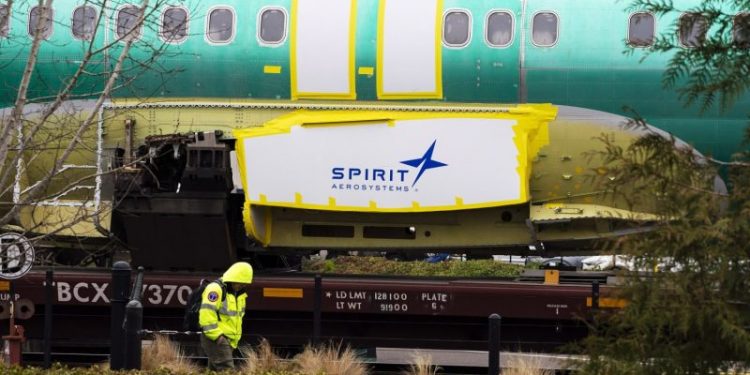Boeing’s Potential Reacquisition of Spirit Aerosystems: Addressing Quality Defects
Boeing, a leading aerospace company, is currently in talks to potentially reacquire fuselage maker Spirit Aerosystems. This move comes in the wake of a spate of quality defects that have plagued both companies in recent years, raising concerns about the safety and reliability of their products.
The partnership between Boeing and Spirit Aerosystems goes back many years, with Spirit being a key supplier of fuselages and other components for Boeing’s commercial aircraft. However, in recent times, the relationship has been strained due to a series of quality issues that have affected both companies.
One of the most high-profile incidents involving Spirit Aerosystems was the discovery of faulty parts in the fuselages of Boeing’s 787 Dreamliner aircraft. These defects not only led to significant delays in the delivery of the aircraft but also raised serious questions about the quality control processes at Spirit Aerosystems.
Boeing itself has been facing its own set of challenges related to quality control. The company has come under scrutiny for a number of issues, including the infamous 737 Max crisis, where design flaws led to two deadly crashes that claimed the lives of 346 people. These incidents have put Boeing under immense pressure to improve its safety standards and regain the trust of regulators and customers alike.
By potentially reacquiring Spirit Aerosystems, Boeing could be looking to take greater control over the production process of its aircraft components and address the quality issues that have been plaguing both companies. Bringing Spirit back under its wing could allow Boeing to implement stricter quality control measures and ensure that all parts meet the highest safety standards.
However, this potential reacquisition also raises questions about the future of Boeing’s supply chain and its relationships with other suppliers. While taking more control over the production of fuselages may help address quality concerns, it could also result in increased costs and complexities for Boeing as it seeks to streamline its operations and improve efficiency.
Ultimately, the decision to reacquire Spirit Aerosystems will have far-reaching implications for both companies and the broader aerospace industry. It remains to be seen how this potential move will impact Boeing’s reputation, its relationships with suppliers, and most importantly, the safety and reliability of its aircraft. As the talks between Boeing and Spirit progress, stakeholders will be closely monitoring the developments to see how these two industry giants navigate their path forward in the face of quality challenges.

















